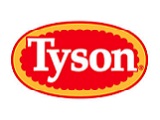Lawsuit Against Tyson Foods Averted by Plaintiff’s Bankruptcy Claim
Post Views 4A truck driver for Tyson Foods, Inc. was fired after he tested positive for drugs. He filed a lawsuit, but his failure to prove his case in court stemmed from his filing Chapter 13 bankruptcy – and what he hadn’t disclosed.
Three days into his orientation at Tyson, the man was terminated after the company learned that he had tested positive for drug use six years prior. He argued, however, that the employment application only required such information within a three-year period of time. His assertion was that the termination was discrimination based on his race. Tyson rehired the employee, but he was required to submit to monthly drug tests. Less than a year later, he tested positive for drug use and was fired again. He maintained that an antibiotic was producing a false positive, but the company refused further testing.
The man filed a charge with the EEOC (Equal Employment Opportunity Commission), alleging racial discrimination with regard to the first termination and retaliation for the second termination – for having complained of the aforementioned racial discrimination. The EEOC issued a Right-to-Sue notice, and the subsequent lawsuit specified violations of Title VII of the Civil Rights Act, 42 U.S. Code § 2000e (civil rights) and 42 U.S. Code § 1981 (equal rights). An additional claim in state court cited intentional infliction of emotional distress.

Tyson moved for summary judgment, asserting that the former employee should be judicially estopped from pursuing claims against the company for failing to disclosure the claims in bankruptcy court. Judicial estoppel is essentially when a person is prevented from legal action that may be in opposition to other legal proceedings. The man amended his schedule in bankruptcy court to list the claims against Tyson about a week after the company’s motion, but the district court granted summary judgment in favor of Tyson and the man’s claims were dismissed.
Appellate judges affirmed the district court’s ruling, but one of the judges had a dissenting opinion. In other words, the majority opinion was affirmation with a judge in disagreement. This appellate judge argued against Tyson’s assertion that the plaintiff’s intent was “to gain an unfair personal advantage” by not citing the claims in bankruptcy court. While the majority discounted the man’s contention that the failure to note the claims was not deliberate, the dissenting opinion suggested that there would be no way in which the man could prove lack of intent. Furthermore, the judge believed that Tyson was unable to show this as well and therefore had not adequately argued its motion for summary judgment.
Judicial estoppel helps prohibit people from defrauding the bankruptcy court. The appellate judge, however, stated that such action isn’t always the answer and respectfully dissented from the majority opinion.
Lawsuit Against Tyson Foods Averted by Plaintiff's Bankruptcy Claim by Harrison Barnes



 Top Trends in Human Resources
Top Trends in Human Resources  Top 4 Most Effective Management Styles & How to Use Them
Top 4 Most Effective Management Styles & How to Use Them  How to Deal with Negative Employees
How to Deal with Negative Employees  Want to Attract Top Talent to Your Company? Have a Purpose
Want to Attract Top Talent to Your Company? Have a Purpose  What Does It Actually Cost to Hire a New Employee?
What Does It Actually Cost to Hire a New Employee?  Telecommuting Doesn’t Work for All Jobs
Telecommuting Doesn’t Work for All Jobs  5 Ways You Can Hire and Keep the Best Employees for Your Company
5 Ways You Can Hire and Keep the Best Employees for Your Company  Generation Y is Changing Corporate America
Generation Y is Changing Corporate America